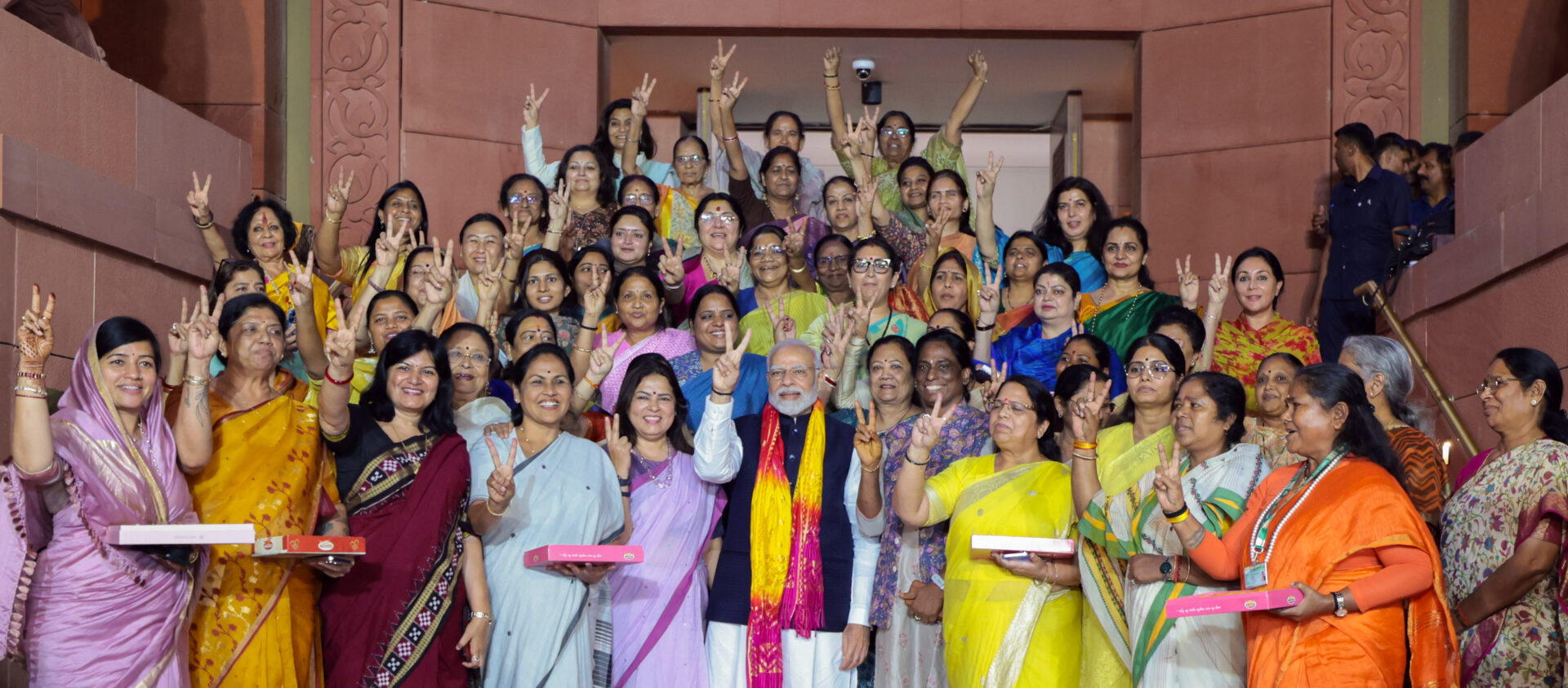Quotas for women may take their time to be implemented, but perhaps women can start by demanding a seat at the table in their own political parties.
NEW DELHI
There are few nations in the world whose laws for women are as enlightened as they are in India. Women in the organised workforce get six months’ paid maternity leave, a right still denied to women in the United States, where there is only up to 12 weeks of unpaid maternity or parental leave. Women have the right to a safe and legal abortion up to 24 weeks, a right being rolled back in the US.
Women in rural and urban local bodies get mandatory representation thanks to the 73rd and 74th Amendments. And after the Nirbhaya rape, the sexual assault laws are fairly stringent.
Yet the distance between rhetoric and reality is always unfathomable. Indian women, by and large, live unequal lives when it comes to access to resources. A majority of farmers are women, yet they don’t get to speak for their land. The number of women who vote in the General Election is rising, yet when it comes to deciding the laws of the land, they are in an abysmal minority—14.6% of the Lok Sabha. Only 10% of working-age Indian women in 2022 were either employed or looking for jobs, which means only 39 million
Yet, we all know that a woman’s work is never done, whether it is running the household, raising children or taking care of the elders. Moreover, we also know that 94% of total women workers in India are employed in the unorganised sector
In such a scenario, the passage of the Nari Shakti Vandan Adhiniyam (or the 128th Amendment Bill), which proposes 33% reservation for women in the Lok Sabha and Assemblies of State and National Capital Territory of Delhi, for 15 years, is honourable, even though it comes attached with conditions relating to the Census and delimitation. Women have always grabbed every opportunity offered to them, whether it is creating a new generation of grassroots leaders after 30 years of 50% reservation for women in Panchayati Raj institutions or becoming the world’s largest number to be studying STEM.
In India, 21 states have implemented 50% reservation of seats for women in PRIs. As of 2020, over 46% of the members in these Panchayati institutions are women. According to a study conducted by the Gokhale Institute of Political and Economics based in Pune, 86% of the women surveyed mentioned that they contested in Panchayat and Zilla Parishad elections primarily because the seats were reserved for female candidates.
The 1992 amendment was historic, resulting in the elevation of over 14.5 lakh women to leadership positions in India’s local governance, even if not all of them are functioning independently.
Quotas for women may take their time to be implemented, but perhaps women can start by demanding a seat at the table in their own political parties. They could begin with the two major national parties, the Congress and the BJP, which simply do not choose enough women to contest elections. The BJP fielded 56 women in the 2019 general elections, compared to 385 men. Yet 41 women won, with a strike rate of 73%, compared to a strike rate of 66% for men. The Congress nominated a similar ratio of female candidates as the BJP (12.3%), but only six of its 52 women candidates got elected.
Of the 8,054 candidates who contested the Lok Sabha, only 726 were women. How can women win elections, if they’re simply not fielded? Wherever they are, for instance, in the case of TMC and BJD, where one third of the candidates were women, they did impressively—nine of the 21 TMC women candidates won and six of the seven BJD women candidates won.
Yet, overall, a mere 78 of the 543 Lok Sabha constituencies elected women in the 2019 General Elections, up from 62 in the 2014 elections. With the Women’s Reservation Bill, this number will go up to 179. Left to the political parties, the change, if at all, will be slow. Sometimes a revolution has to be mandated. The women who fought alongside men during the freedom struggle didn’t question their sacrifices. They just followed what their leaders told them, whether it was to boycott foreign goods or to take to arms.
Society is changing, as are social norms. Families have to become more dynamic and more equal. How long can one half of the population be expected to live half-lives?
The author is a senior journalist.

